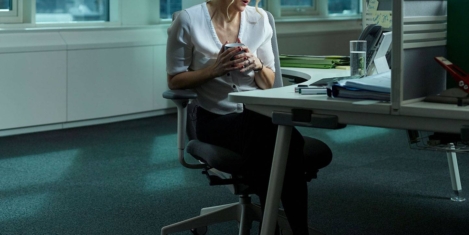May 29, 2018
Drones could add £42 billion to UK GDP by 2030
 Drone technology has the potential to increase UK GDP by £42 billion (or 2 percent) by 2030, according to new research from PwC. The research estimates there will be more than 76,000 drones in use across UK skies by 2030. More than a third of these (36 percent) could be utilised by the public sector (including in areas such as defence, health and education). The report claims that drone technology could help the UK achieve up to £16bn in net cost savings by 2030 through increased productivity. The technology, media and telecoms (TMT) sector stands to save the most by using drones, with a potential net saving of £4.8bn by 2030.
Drone technology has the potential to increase UK GDP by £42 billion (or 2 percent) by 2030, according to new research from PwC. The research estimates there will be more than 76,000 drones in use across UK skies by 2030. More than a third of these (36 percent) could be utilised by the public sector (including in areas such as defence, health and education). The report claims that drone technology could help the UK achieve up to £16bn in net cost savings by 2030 through increased productivity. The technology, media and telecoms (TMT) sector stands to save the most by using drones, with a potential net saving of £4.8bn by 2030.















 One in four working people aged 55+ with a health condition are considering leaving work as a negative culture and bureaucratic procedures put many off speaking to their employers until a crisis point. This is according to a new report from Ageing Better, ‘Health warning for employers: supporting older workers with health conditions’, which claims that employers are not properly supporting older workers experiencing long-term physical and mental health conditions. Health is the most important factor affecting older workers’ decisions to stop working before reaching State Pension age. Ageing Better’s research finds that early access to support, small adjustments to the workplace and working patterns, and empathetic management are crucial to enabling people to manage their health at work and remain in employment. But the research also found that workers are often put off speaking to employers until the last moment due to poor workplace culture and overly bureaucratic procedures.
One in four working people aged 55+ with a health condition are considering leaving work as a negative culture and bureaucratic procedures put many off speaking to their employers until a crisis point. This is according to a new report from Ageing Better, ‘Health warning for employers: supporting older workers with health conditions’, which claims that employers are not properly supporting older workers experiencing long-term physical and mental health conditions. Health is the most important factor affecting older workers’ decisions to stop working before reaching State Pension age. Ageing Better’s research finds that early access to support, small adjustments to the workplace and working patterns, and empathetic management are crucial to enabling people to manage their health at work and remain in employment. But the research also found that workers are often put off speaking to employers until the last moment due to poor workplace culture and overly bureaucratic procedures.






 More than half of working adults believe that UK businesses are not doing enough to support the physical and mental wellbeing of their employees. The vast majority (86 percent) believe that firms are specifically not doing enough to help employees deal with work-related stress, anxiety and other mental health issues. And with seven out of 10 of those surveyed by
More than half of working adults believe that UK businesses are not doing enough to support the physical and mental wellbeing of their employees. The vast majority (86 percent) believe that firms are specifically not doing enough to help employees deal with work-related stress, anxiety and other mental health issues. And with seven out of 10 of those surveyed by 










May 30, 2018
Australia is leading the world in the adoption of activity based working
by Max Luff • Comment, Flexible working, Workplace design
(more…)